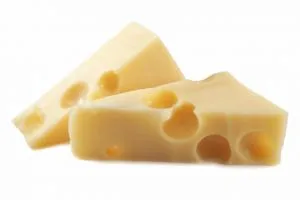These days when you go shopping for cheese, there seems to be more processed cheese product on the shelves then there is actual cheese. What is the difference, you may wonder?
Well, to state it simply, processed cheese isn’t a healthy food choice, and it could be dangerous.
How is it different?
To produce natural cheese, milk is heated and then enzymes and cultures are stirred in. The curds are separated from the whey, and then the curds and salted and knitted into a block or wheel to begin the aging process.
Processed cheese is made from combining other already-produced cheeses that have been heated up and blended all together, pasteurized, and then mixed with an emulsifier to keep them from separating in the melting process. Often, a milk protein concentrate dairy substitute is used to keep production costs down, and occasionally food dyes as well.
According to U.S. food regulations, in order to be labeled a ‘processed cheese food,’ a product only needs to contain 51 percent natural cheese.
Hidden dangers
The emulsifiers that cause processed cheese to maintain a smooth consistency as it melts may also be responsible for some unwanted health risks. The most commonly used emulsifiers are sodium phosphate, potassium phosphate, and tartrate.
Sodium phosphate has been used as a medication, and is known to sometimes cause kidney damage. At times, it has caused permanent kidney damage and led to the necessity of dialysis treatment.
Potassium phosphate has been responsible for causing severe allergic reactions in some people, such as hives, itching, difficulty breathing, swelling of the mouth, face, lips or tongue. It has also been linked to bone or joint pain, confusion, dizziness, irregular heartbeat, numbness, muscle cramps, tingling in hands or feet, shortness of breath, and weakness or heaviness of the legs.
Tartrate has been linked to diarrhea, dizziness, constipation, dry mouth and eyes, headache, heartburn, mild drowsiness, lightheadedness, stomach pain, trouble sleeping, and vomiting.
As we also mentioned, food coloring is sometimes added to processed cheese to make it more visually appealing. These food coloring agents can be hazardous as well. Particularly, Yellow 6 and Yellow Tartrazine, which have been banned in some European countries. There have been animal studies that have shown that these dyes can promote the growth of tumors in the kidneys and adrenal glands.

Generally, canola oil is mixed in as well, to maintain the semi-solid state of the cheese. Canola oil is highly processed, and manufactured from genetically modified seeds.
Real cheese – especially organic cheese made from grass-fed milk – can be healthy in moderation. Your best source is a local cheesemaker who follows responsible practices, and is dedicated to a quality product.
When it comes to the processed cheese… there’s just no reason to eat the stuff.
-The Alternative Daily
Sources:
http://superhumancoach.com/negative-effects-of-processed-cheeses
https://food-safety.knoji.com/is-processed-cheese-yet-another-dangerous-fast-food-to-avoid
http://www.eatingwell.com/nutrition_health/nutrition_news_information/is_it_still_cheese
